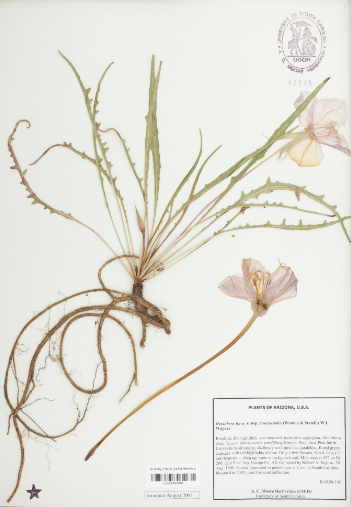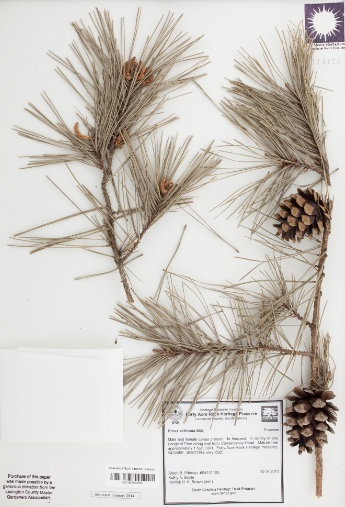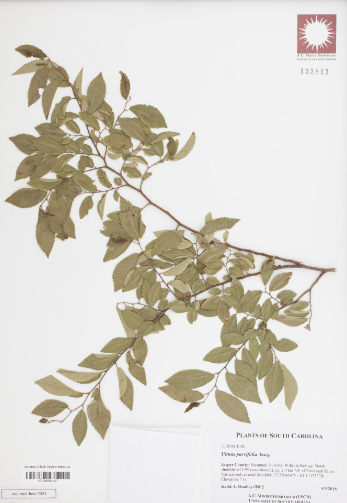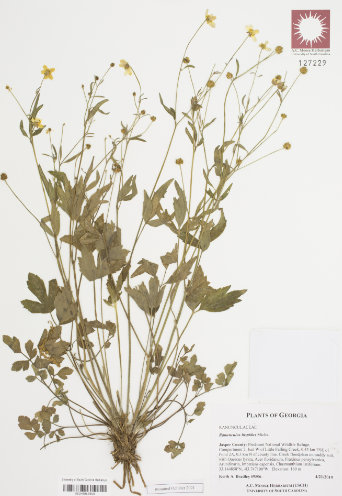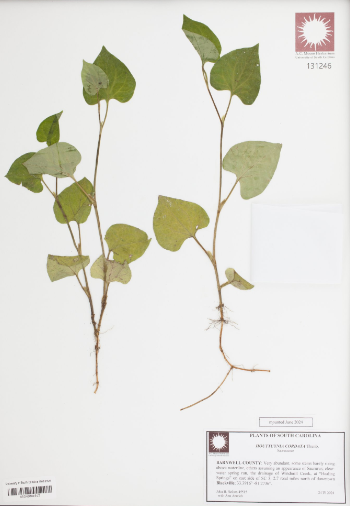The University of South Carolina welcomes you to the A.C. Moore Herbarium (USCH)!
Founded in 1907 by Dr. Andrew Charles
Moore, the original collection of dried plant specimens is now part of an ever growing collection. Providing
services and
educational outreach to the public and researchers alike, the A.C. Moore Herbarium is "The Peoples' Herbarium." At
just over
130,000 dried plant specimens, we house the largest collection in the state of South Carolina.
Researchers and visitors will find a diverse collection of vascular and nonvascular plant material primarily from the Southeastern United States and more specifically from South Carolina. Now over 110 years old, the A. C. Moore Herbarium continues to be an indispensable resource for botanical knowledge.
Tours are available by appointment. Botany Walks are hosted the third Wednesday of every month on the USC 'Horseshoe,' and meet on the steps of the McKissick Museum. Check out the USC calendar for exact dates!
Volunteering positions are currently OPEN for Fall 2025!
Potential independent studies for USC class credit and research opportunities may be available (must be set-up during the semester registration process no later than the first week of classes).
Please email us if you are interested in learning more!
Herbarium mentions, articles, and more!
If pollen's got you sneezin' this season, these SC trees might be to blame (Nicholson, Z. 2025)
Biodiversity: Natural Resources (Flannery, M. 2024)
At A.C. Moore Herbarium: Materiality of Specimens (Flannery, M. 2023)
At A.C. Moore Herbarium: Ecology (Flannery, M. 2023)
At A.C. Moore Herbarium: Aesthetics (Flannery, M. 2023)
At A.C. Moore Herbarium: Collecting (Flannery, M. 2023)
Curator of USC's Herbarium Funnels Lifelong Passion into Education (Bozard, C. 2022)
Grasses, Flowers, and Plants, Oh My! (Bowman, M. 2021)
Chestnuts Growing on a Campus Tour (Brown, H. H.K. 2019)
Giant Water-hemp Can Reach Tree Height Status (Nelson, J.B. 2018)
Shining a Light on Dark Data (Powell, S. 2014)
Henry William Ravenel: Nineteenth-Century Botanist, Mycologist, Naturalist (Brown, H. H.K. 2014)
Spotlight on USC: A.C. Moore Herbarium (Marsh, A. 2012)
Mission
At the A.C. Moore Herbarium, we are dedicated to preserving unique botanical specimens and their use in support of teaching, research, and community engagement.
Vision
Our vision is to serve as a leading resource for botanical information in South Carolina by:
- Maximizing our ability to provide for the continued curation, growth, and use of our collections as a diverse and dynamic botanical repository.
- Collaborating with other herbaria to facilitate access to collections information and share in the development of collections and data management protocols.
Core Values
- Preservation - Careful curation of the specimens in the collection is of paramount importance. Staff and volunteers work carefully to ensure the specimens and the information they contain will be preserved indefinitely.
- Accessibility - Specimen information is openly available and can be accessed in person or digitally, free of charge.
- Education - Serving as an essential resource for training future botanists and curators, the collection also supports education in both the scientific community and public at large by fostering botanical appreciation and discovery.
- Research - As primary reference materials, our specimens provide critical support to a variety of research projects. Digitization of these specimens and other relevant materials unlocks research potential at a global scale and provides data for countless disciplines and topics not only in science but also the humanities.
